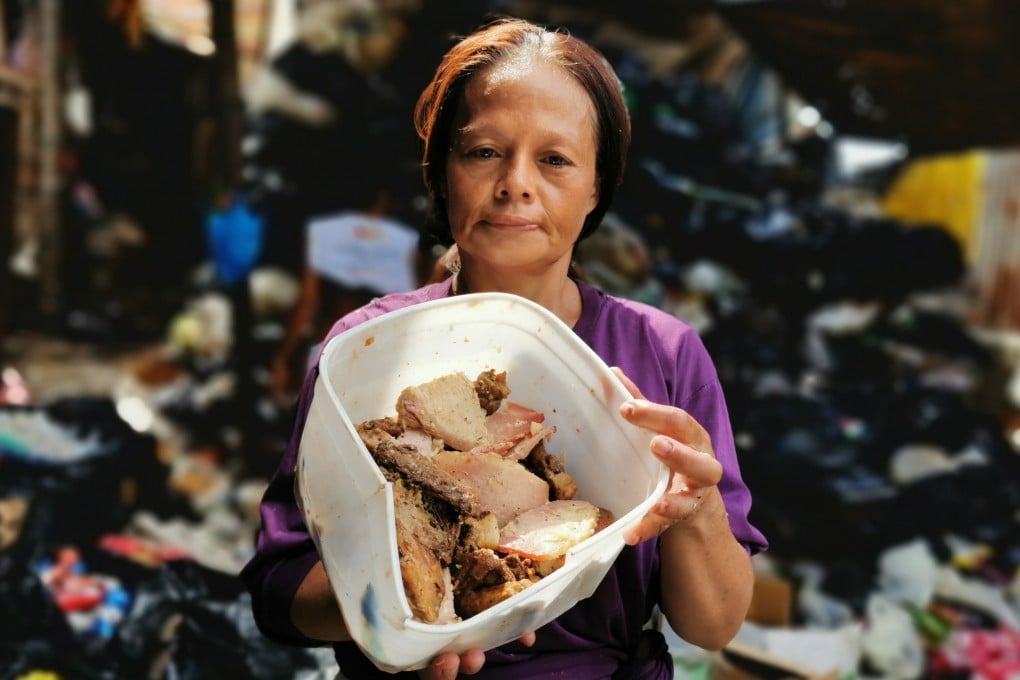In Philippine slums, meat scavenged from dumpsters feeds those short of meals and hope
- Consuming pagpag leads to stunted growth in children, and heightens the risk of acquiring hepatitis A, cholera and typhoid
- Despite the government’s incremental success at reducing poverty, eating and selling pagpag is a way of life in slums like Payatas

Morning traffic rattles through the slum district of Payatas in Quezon City, just north of Metro Manila. It is 9am but over 30 degrees Celsius and climbing. A truck pulls over and workers unload the morning’s collection of rubbish, depositing it behind the corrugated iron gates of Joe’s Junk Shop.
Payatas is a sprawling shanty town built on a landfill, and these junk shops are an integral part of the local economy. Inside, it is a hive of activity. The space is piled four metres high in parts with sacks bulging with waste; sweaty, black sausages that split their skin in the heat, detritus spilling out to be sorted and separated.
Joe Bolon, the owner, pays 6 pesos (10 US cents) for a kilogram of waste. Deliveries begin arriving before dawn. Once pulled out and stripped of packaging by Bolon’s team of wiry young men in plastic sandals, recyclables get sold for 18 pesos per kilogram.
Myrna Salazar is the only woman working there. She is 40 years old, but looks more weathered. She moved to Manila from Samar 30 years ago and has been “collecting” in Payatas for two decades. Her eyes skim the sea of refuse for anything worth salvaging; her hands move almost as fast, deftly avoiding jagged objects concealed beneath the surface.
One of the men hacks apart a hollowed-out watermelon shell with a machete, adding to the pile of fruit rinds and gristle that will be bundled as pig feed and sold for 150 pesos (US$3) per sack.
Other scraps – chicken and pork deemed edible – are set aside in a white ice-cream tub to be washed, cooked and sold in the neighbourhood. This is pagpag – “shake off the dirt” in Tagalog. Discarded food still fit for hungry mouths in slums like Payatas.
